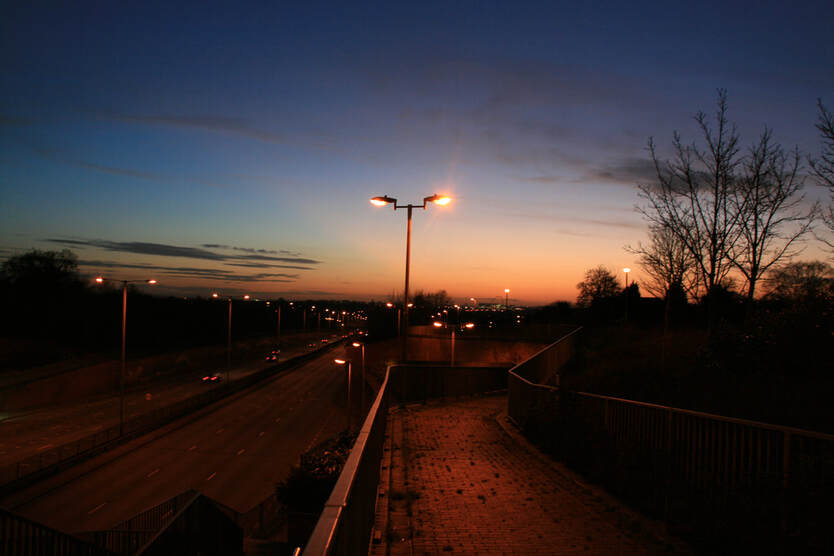|
4/16/2020 0 Comments Editor's Remarks David Jones 大卫 琼斯 CC
"Come on over and cry in my kitchen." -Gretel Ehrlich God, I love that line. It's spoken to the author, Gretel, who is in some deep and abiding grief, over the phone one morning, by a woman juggling five ornery kids and a temperamental husband, in the unforgiving, apocalyptic terrain of Wyoming. I've known such people who have made time for me when it perhaps made no sense at all for them to do so, given their own dire circumstances. Maybe you have too. Those kinds of things are the reason many of us made it this far. Such a sentiment still exists here, in this small digital space - even if we most certainly cannot cry in each others kitchens anytime soon. While many of us are currently sheltering in place, there are that many more who have no place at all to attach the word shelter to, let alone the word home. For some communities, an already too deep precarity of life is driven ever deeper, not to mention "life" (already so reduced) for those in prison and in mental institutions. Why should it have taken a pandemic to own up to our relational existence? That I am me through you and you are you through me. One thing I've noticed, not a single news report on indigenous communities (their needs, their struggle) during this time, even less on the homeless. Why is that? Are some lives more grievable than others? Jabulile Mickle-Molefe's poem for hobbes, explores this contradiction embodied in our institutions when she writes of; "the heroin addictions devouring the midwest like a crave case," while throughout the 1970's, 80's and 90's, black and brown communities did not hear their addiction stories told in as sympathetic and humanizing a light as many in our current Opioid crises do. Whose voices, whose stories actually get heard and whose get forgotten, purposefully washed away? We do not know how many indigenous woman have died because our institutions do not care when they go missing, and they go missing at an alarming rate, never to be seen again. What kind of world is that? Where some lives aren't even grieved properly, aren't even considered losses? One we have grown far too accustomed to. Even now, in this pandemic, some stories, it seems, get told at the expense of others. Here we explore those lives lived (pushed) on the margin, no safe place to call home or shelter or "please god, just let me rest here a while." Our hearts, as always, are geared towards those who are on the floor. Eros Salvatore, Gene Lynn and Addy Miller tell harrowing but ultimately hopeful stories (one survives) of the hell that is addiction. Tetman Callis and Caroline Piermattei write of working-poor-class characters whose lives are just one paycheck away from having nothing at all. These are harsh, bare boned landscapes, the new American normal, it would seem. In 'A World Away', Bonnie E. Carlson writes heartrendingly of a teen in foster care as she visits her mother in prison with her case manager, and later, back at her foster parents, contemplating if it's even safe enough to have hope in her newfound environment where adults, for the first time, seem to actually believe in her. Carla Sameth writes of one family just looking for a rehab to check into on a bad and end-of-the-rope kinda night, and told; no room at the inn. It's easier for some than it is for others to get the help that they need. That's as true now, during this pandemic, as it is in a million other ways. Nicole Goodwin narrates her childhood memories in Brooklyn, filled mostly with that youthful joy- until a dead body, fallen from a car one summer becomes, not just the end of innocence, but the way things are for everyone that she knows from that time and place, many of whom, sadly, will not make it. Goodwin's haunting tale reminding me of a story my father once told me about his own childhood in Brooklyn; seven years old, playing marbles, and a man is suddenly stabbed right in front of him. Where do you file that away? How it must ever more shape the world that we just learn to get used to. Friends, I sincerely hope you never get used to living in such a world. That you kick that habit, cry that trauma, and shout the name of that injustice. Shout so loud the world has no choice but to listen. Put the pain in the poem and the poem in the palm of our hands. Come on over and cry in our kitchen. James Diaz Founding Editor Anti-Heroin Chic *Special thanks to my wonderful co-editors, Jenny Robbins, for her deeply felt and inspiring selection of essays, and to Dana Espinosa for the astounding poems that she's assembled. And to Eros Salvatore, who took time to narrate their story, 'Heroin, My Only Friend' for us, in our ever expanding audio soundcloud.
0 Comments
Your comment will be posted after it is approved.
Leave a Reply. |
AuthorWrite something about yourself. No need to be fancy, just an overview. Archives
April 2024
Categories |

 RSS Feed
RSS Feed
